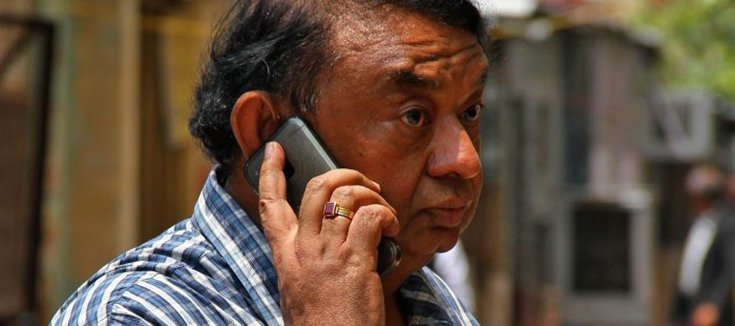World’s Top Medical-Ethics Body Just Installed a Corrupt President

The World Medical Association (WMA), the top medical-ethics body, has appointed Dr. Ketan Desai, an Indian doctor facing corruption charges, as its president.
The France-based association sets ethical standards for physicians worldwide and represents millions of doctors. Its members include the American Medical Association (AMA) and the British Medical Association (BMA).
In his speech, Desai warned against “unqualified people indulging in professional medical practice causing endless harm to society.” [2]
Desai delivered his inaugural speech as president October 21 at the association’s annual assembly in Taiwan, according to a WMA statement. [1]
He will serve as president for the 2016-2017 period. [3]
The doctor has faced conspiracy and corruption allegations since 2009, when he was first selected as a future president of the WMA. [1]
WMA spokesman Nigel Duncan said of the pending legal action against Desai:
“I don’t think there’s anything we want to add to what we have already said.”
Duncan would not answer questions about Desai’s legal cases or what the ethics body had learned about them in recent months.
The Charges
Desai is facing charges of corruption and criminal conspiracy, which were filed in New Delhi in 2010. The new WMA president was allegedly involved in a conspiracy to bribe 20 million rupees ($450,000 at the time) from a medical college.
According to investigators, Desai helped the school get permission from the Medical Council to add more students. The college – which is not a defendant in the case – declined to comment when contacted last year.
That year, Desai was jailed and his inauguration as WMA president was suspended. He was later released on bail.
In 2013, the WMA lifted the suspension after receiving assurances from the Indian Medical Association (IMA), which Desai once headed.
A July 2015 Reuters investigation revealed that the IMA had incorrectly informed the WMA that charges against Desai had been withdrawn. Representatives of major doctors associations believed the IMA without following up.
The IMA has said it never misled the WMA, but the WMA said it would look into Reuters’ claims.
In October of last year, the WMA upheld its decision to appoint Desai as president, but did not explain the reasons behind its decision.

According to a source at India’s Central Bureau of Investigation, the New Delhi case remains active, though it is on hold due to a pending appeal in the Supreme Court. Desai must still appear before the district court judge during hearings.
A court document from earlier this summer shows Desai submitted an application seeking an exemption from having to make a personal appearance in court that day, due to illness. The next hearing is scheduled for November 4.
In a separate case, Desai is accused of being involved in a conspiracy to have the Medical Council of India allow a private medical school to add more students. Proceedings in that case were put on hold last year by a district court in northern Uttar Pradesh state until investigators get the go-ahead from the government to prosecute.
There has been no change in status in the case, Desai’s attorney said.
In total, Desai has had 7 cases brought against him.
Desai has denied all charges against him.
Speaking of ethics and the AMA, the group seems to be lacking them when it comes to “alternative” treatments and therapies. It has worked tirelessly to put the kibosh on doctors who aren’t willing to always peddle expensive drugs with nasty side effects.
And while the AMA is a prestigious group, it represents just 17% of doctors in the United States.
Sources:
[1] Reuters
[2] International Business Times
[3] The Wire

March 15, 2016 Monsanto In India All in all the US subsidiary control some 90 percent of the market, as the agricultural biotechnology corporation serves over seven million cotton farmers in India.
However the new government commission is keen to reduce the price of the crop after local seeds companies filed complaints that MMB was charging high fees to sub-license BT cotton seed technology since 2002. The government is reportedly planning to reduce the royalties of its genetically modified cotton seeds by 70 percent.